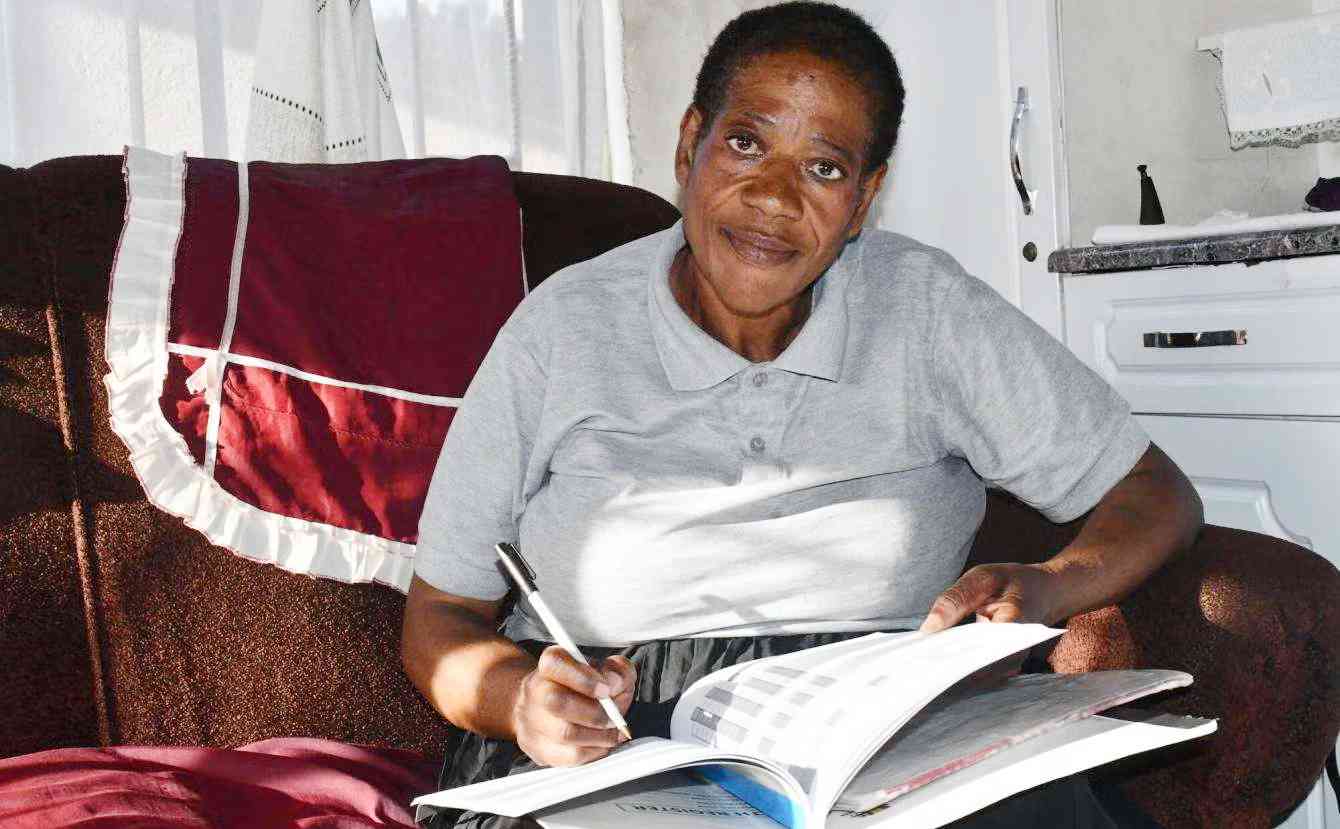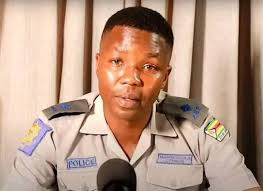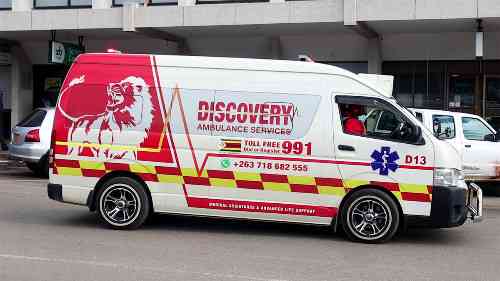
Angela Jambo welcomed us warmly into her modest home in Chitungwiza, one of Zimbabwe’s largest and fastest-growing dormitory towns, located 25 kilometres southeast of the capital Harare.
Her beaming smile masked a long, painful journey.
Without hesitation, Angela took us back to the year 2000, the year she was diagnosed with HIV.
“Back then, it was a death sentence,” she said.
At the time, Zimbabwe was not offering antiretroviral treatment (ARVs) and people living with HIV relied on “positive living” methods focused on traditional nutrition, herbal remedies, mental well-being, and peer support to manage life with HIV and home-based care for the bedridden.
The situation was dire, but Angela and a few other women came together and marched to the State House to share their grievances with the late president Robert Mugabe.
They did not manage to get to the State House due to security reasons, but eventually they secured a meeting with the late vice-president Joseph Msika.
That meeting became one of the many milestones that led to the introduction of ARVs in Zimbabwe five years later.
- GCC grinding to a halt
- Another ETF lists on ZSE
- Econet to use Buddie Beatz app to grow local music
- Letter from America: Is former president Donald Trump a hero or villain?
Keep Reading
Since then, Jambo has spent her time advocating for others living with HIV.
With strong donor support, especially from the United States Agency for International Development (USAid), access to treatment expanded, support groups grew, awareness increased, and hope renewed.
But that hope is now crumbling after the US President, Donald Trump, issued a sweeping executive order that froze most foreign aid, followed by aggressive and rescinding proposals aimed at cutting billions in global health and development funding.
Over 170 days later, today, the USAid has effectively ceased operations, the US President's Emergency Plan for Aids Relief (PEPFAR) faces an uncertain future, and the administration announced the end of US. funding for UNAids, the United Nations flagship programme for HIV and Aids.
More donor countries, including the Netherlands and the United Kingdom’s Foreign, Commonwealth & Development Office (FCDO), have announced reductions in their financial support in Africa, a situation that will further cripple Zimbabwe’s already overstretched health sector.
Angela felt the blow first-hand.
She received the message to stop all activities via a WhatsApp group for volunteers under USAid projects.
Immediately, nutritional aid, food hampers, psychological support, and educational materials disappeared.
Parents and guardians of children living with HIV were thrown into confusion.
USAid had been their only hope for school fees including examination registration fees.
Angela's voice cracked as she recalled an 11-year-old boy born HIV-positive who lived nearby.
After learning the truth about his medication, he became violent and blamed his mother for his status.
Angela counselled him and introduced him to a support group which changed his life.
That boy, and many like him, weigh heavily on Angela's heart.
Support groups were everything, Angela said.
“Now I see these children walking aimlessly as we are no longer conducting any support group activities,” she said.
“It's stressful and disturbing.
“These children had found a family in our groups. “Now, all of that is gone.”
Angela's story is far from unique.
In Mbare, Beloved Mhizha (not his real name), a former micro-planner with The Centre for Sexual Health and HIV/Aids Research Zimbabwe (CeSHHAR Zimbabwe), an organisation that specialises in population health research and HIV/Aids programming has watched, helplessly, the network of sex workers he worked with collapse.
Before the funding cuts, clinics were well-stocked with medication and supplies, he said.
“Now, we are seeing condom stockouts, something we have not been experiencing lately. Preexposure prophylaxis (PrEP) for HIV prevention is no longer given to new clients,” he said.
“We seem to be going backwards.”
He described how services that they accessed with ease have either become inaccessible or prohibitively expensive.
“We used to get medication for free,” he said.
“Now, we must travel long distances or go to private clinics where we pay for the medication for some drugs.
“Even the gas used during cryotherapy, a common treatment for genital warts that uses extremely cold temperatures to freeze and destroy the wart tissue, is no longer available.
“Loops (Intra uterine device IUD which act as a contraception) and condoms are in short supply and clinics no longer treat minor ailments like they used to.”
Sithabile Garananga, a sex worker who worked as a PrEP champion and a lay counsellor trained by Friendship Bench, an organisation that provides community based psychosocial support is also now idle.
She used to volunteer at a CeSHHAR run facility in Mbare providing counselling services to people struggling with depression, suicide, drug use, and abuse amongst other challenges.
“It was tough work, but rewarding,” she said.
“Now, I cannot help anyone, even though I know how to.”
She used to follow up with clients, especially key populations ensuring they stayed on medication and received proper care.
Today, without support from clinics or funding, she is not useful to them.
“It hurts to see people suffering while I stand by with my hands tied,” she said.
In Glen View, Natasha Ngwenyeni, a community volunteer with the Zimbabwe Association of Church-Related Hospitals (ZACH), has also witnessed a painful decline.
Her work involved supporting key populations to access healthcare services and pushing for inclusive policies.
“The work we did brought dignity to people who had long been ignored by service providers,” she said.
“But with USAid said to be closing for good in September this year, I fear the worst is yet to come.
“Already, key populations are beginning to shy away from being served at local clinics as they fear being judged by service providers.”
Médecins Sans Frontières (MSF) Country Representative, Zahra Zeggani-Bec, highlighted that the funding cuts are already having far-reaching consequences.
“We are seeing a total collapse in community-based and prevention programming, especially for key populations who are now entirely left behind,” she said.
“The cuts are not just hitting programme activities and medical stocks; they are crippling the logistical backbone of HIV care.
“Transport for distributing supplies has all but vanished.
“Confusion reigns, with services changing daily or weekly, leaving patients unsure where to go and breaking continuity of care.
“We are also deeply concerned about looming stock outs of essential drugs, HIV test kits, and lab equipment, particularly the cartridges needed for the GeneXpert machines that are central to HIV and TB diagnosis.”
Zimbabwe received approximately US$461 million in health assistance from development partners in 2024 towards HIV and Aids, malaria as well as tuberculosis prevention, maternal and child health programmes and the USAid contributed more than 50% of the health assistance.
Community Working Group on Health executive director, Itai Rusike, said Zimbabwe has been left with a huge financing gap after the funding cuts.
“It, therefore, calls for the Ministry of Finance to ring-fence the Sugar Tax, Airtime Tax, Aids Levy etc towards health. Maybe what this is pointing to is the need for a well-defined and well-crafted National Health Insurance Scheme,” Rusike said.
“So without funds being rapidly mobilised to fill the gap, the consequences of the funding termination can be catastrophic as patients and communities that depend on US support for lifesaving interventions will face disruptions to critical services.
“We need to have a quick National Indaba with all the stakeholders in the health sector including the private sector to draw the Zimbabwe Sustainability and Transition Roadmap.”
The consequences of ongoing and newly announced funding cuts threaten to reverse decades of hard-earned progress in Zimbabwe, where an estimated 1,3 million people are living with HIV significant achievements.
Media reports show that from January to June 2025, Zimbabwe recorded 5 932 Aids-related deaths, up from 5 712 during the same period in 2024.
While the cause of the increase remains unclear, the trend raises concern.
* MSF interviewed volunteers working with different organisations who witnessed first-hand the impact of the funding cuts in Zimbabwe.
* Médecins Sans Frontières (MSF), under its current Adolescent Sexual and Reproductive Health (ASRH) and Artisanal Miners projects in Harare and Gwanda respectively, is filling critical service gaps that have widened due to reduced USAid funding. The ASRH project operates in densely populated suburbs of Mbare and Epworth, offering a mix of medicalised and peer-led, adolescent-friendly services aimed at reducing SRH-related morbidity and mortality. Meanwhile, the Gwanda-based Artisanal Miners project is delivering mobile, integrated health services in remote mining communities, targeting the intersecting burdens of HIV, TB, and silicosis. Both projects are grounded in strong community engagement, ensuring services are responsive, inclusive, and context-specific.










